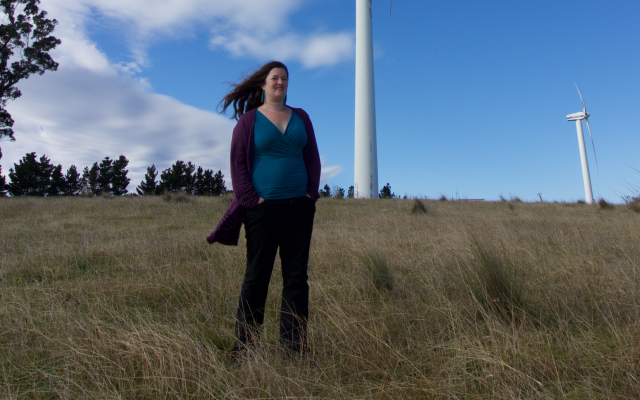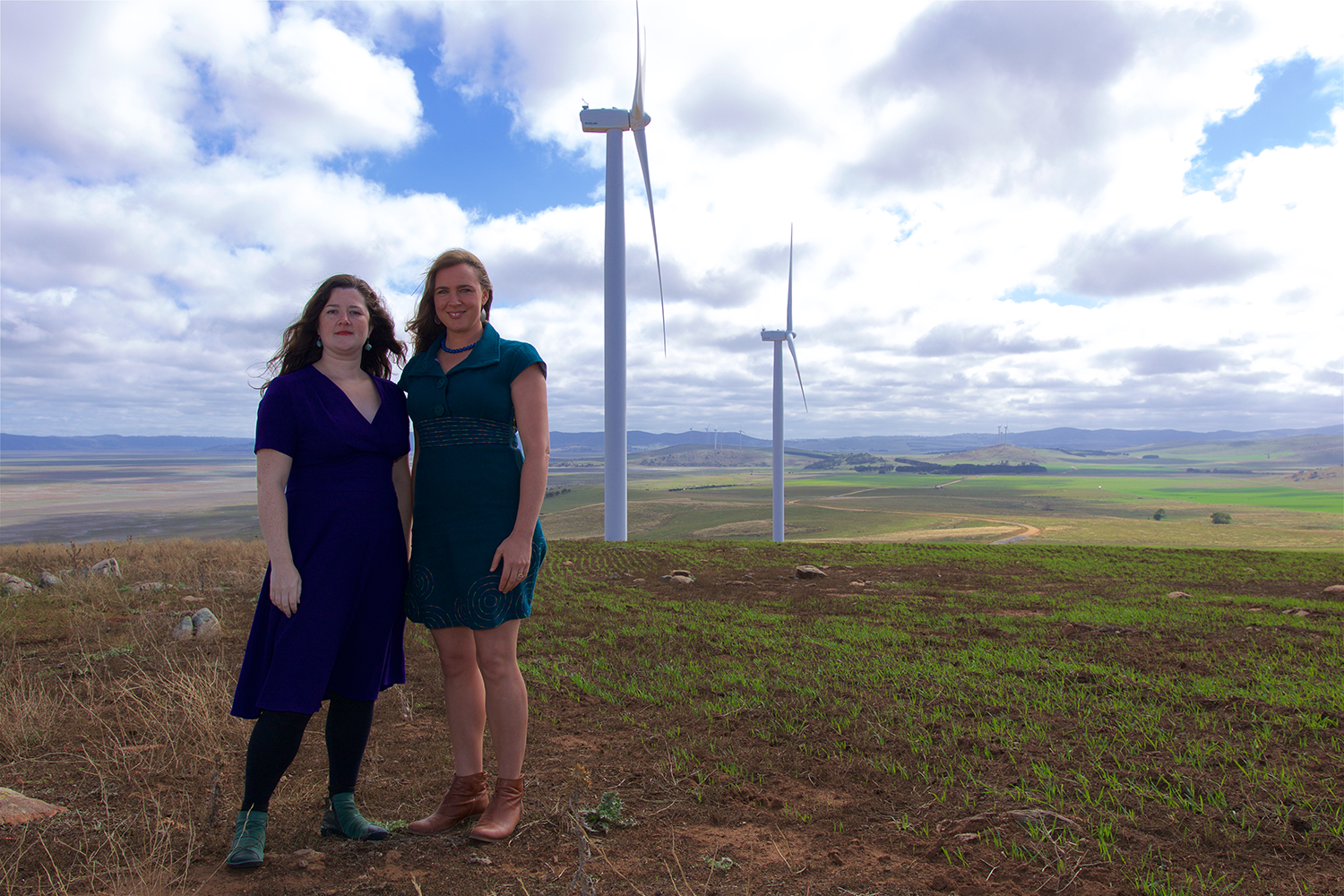
UNSW Women in Engineering Ambassador Nicky Ison is on a mission to help Australia become the world’s leading exporter of renewable energy by 2030 – an aim that is not only desirable, but eminently possible.
Nicky Ison is without doubt one of the most positive and future-focused alumnae of UNSW Engineering. From the start, her career has been marked by her passion to raise awareness about and implement practical solutions for climate change. A phenomenally hard vocation – not just from a technical perspective but a mental health perspective too, given the barrage of terrible news we so often hear on this front. 
Her career so far has been exemplary. She was a Founding Director of the Community Power Agency – established in 2011 to help community groups navigate the complex process of setting up community owned renewable energy projects; she has been a Strategist at Climate Action Network Australia – who support members and their allies to take action to create a fair, clean, healthy Australia; and, she continues to be a Research Associate at the Institute for Sustainable Futures (ISF) at the University of Technology Sydney.
Today, with almost two decades of quality, change-making work under her belt, and widely recognised as a national expert and commentator in the fields of energy policy, community energy, new energy business models and the transition away from coal, she hopes her latest role will be her most impactful yet.
“In November 2019, I became the Energy Transition Manager at WWF-Australia. The purpose of this brand-new role is to develop a campaign and program of work that accelerates Australia towards becoming the world’s leading exporter of renewable energy by 2030,” she says. “It’s an ambitious mission, but eminently possible.”
Nicky says that for too long Australians have been fed the line that we have to choose between a prosperous economy and a healthy environment. She says this black/white, either/or choice is completely erroneous and she is determined to change the narrative.
“The truth is we can thrive as an economy while acting on climate change. In fact, it is becoming increasingly obvious that there are monumental risks to the economy if we don’t act on climate change, just look at the economic impacts of the Australian bushfires this summer,” she says.
To achieve her goal, Nicky has developed a typology of renewable exports that Australia can harness, in addition to exploring the policy mechanisms that need to be put in place for this to happen. Then she plans a huge public awareness raising campaign to create this win-win ‘clean energy+thriving economy’ narrative.
“Australia has some of the best renewable resources in the world and we are well trusted internationally. The technology is there for us to start exporting renewable hydrogen and solar power. We can also export our renewable energy expertise and new hardware and software solutions for decentralised energy and microgrids,” Nicky explains.
“There are huge opportunities to create new onshore manufacturing industries for what I call ‘solar-powered products.’ This means using cheap renewable hydrogen to transform Australia’s abundant raw materials into high value commodities, such as steel, for export. Other new manufacturing industries could create the component parts of the global clean energy supply chain, such as lithium batteries and wind turbine blades.”
Nicky says her double degree in Environmental Engineering and Arts (Environmental Studies) at UNSW, plus a year off halfway through to work at ISF, gave her an incredibly solid foundation with which to pursue the interests that have since defined her career.
“I saw engineering as the best way of combining my concern about what was happening in the world with the skills needed to create solutions,” she continues.
“I learned about renewable energy, supply chains, life-cycle assessment and making judgements around the market opportunities for particular technologies. Having that underlying technical understanding has made all the roles I’ve taken on much easier.”
At the beginning of 2019, Nicky was approached by UNSW Engineering to become a Women in Engineering (WIE) Ambassador for the WIE Can campaign which is designed to showcase UNSW alumna who are role models within the engineering profession.
“I have been passionate about promoting equity, diversity and inclusion in the engineering profession for a long time and was honoured to be asked to do the role. It’s really important to support women into the engineering professions,” she says.
Despite the engineering and energy sectors remaining white-male-dominated, Nicky says there is a groundswell of women working, not just in renewable energy but supporting industries, such as finance, too.
“There is a global call for equity and diversity across all professions, and we now have some very powerful female voices and leaders, fantastic role models who are pushing for greater action. People like Audrey Zibelman, Managing Director and CEO of the Australian Energy Market Operator,” continues Nicky.
“It is wonderful that there is now a global recognition that the creation of appropriate solutions depends on having multiple perspectives of the problem you seek to solve.”
